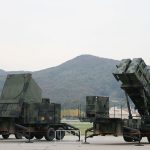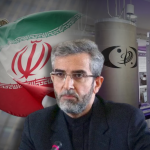ISIS has evolved into a borderless terrorist organization In South Asia


The impact is palpable in northwest Pakistan. Weeks after an ISIS suicide bomber blew himself up, killing more than 60 worshipers as they worshipped, the remnants of an ISIS suicide bomber can still be seen on the formerly magnificent walls of a mosque. The bomber was described as an Afghan from Kabul by ISIS. The blast on March 4 at the Kusha Kisaldar Shia mosque in Peshawar’s old city surprised Pakistanis, fueling fears of a comeback of terror acts in the nation after a decade of steady decrease.
According to Amir Rana, executive director of the Pakistan Institute of Peace Studies, an independent research tank that analyzes terrorist activities in Pakistan, the increase in assaults began last year and is rising. According to the institute’s data, Pakistan has suffered 52 terrorist assaults by late March this year, compared to 35 in the same period previous year. The attacks have also becoming more lethal. In Pakistan, 155 individuals have been murdered in similar strikes so far this year, compared to 68 last years.
Related Posts
A vicious Islamic State (ISIS) offshoot, known as Islamic State in Khorasan Province or ISIS-K, has claimed the worst. Meanwhile, ISIS strikes in Afghanistan look to be on the wane. ISIS-K initially appeared in eastern Afghanistan in 2014. By 2019, it had expanded into neighboring Kunar province and occupied large territory in Nangarhar province. The US military launched a huge air campaign against it, including bombing a suspected ISIS hideaway with the “mother of all bombs,” America’s heaviest conventional bomb. But ISIS persisted, and when the Taliban took control in Afghanistan in August, it faced the biggest security threat.
The Taliban has long been at odds with ISIS-K. In their almost 20-year struggle against the US and its Afghan allies, the Taliban adhere to a strict interpretation of Islamic law and have utilized suicide attacks often. They do, however, frequently combine tribal customs with religious edicts and have reached out to Shia Muslims. ISIS, on the other hand, opposes any organization that does not follow its dictatorial, anti-Shia ideology and is known for committing atrocities in order to instill terror. Unlike the Taliban, ISIS sees its fight as a fight to create a unified Muslim world under a caliphate.
The Taliban retaliated by storming through suspected ISIS strongholds with their trademark violence. Residents reported corpses hanging from trees in October and November. They were informed they were militants affiliated with ISIS. The Taliban intelligence leader in eastern Afghanistan, known as “Basheer,” claims the group has been brought under control. “We were able to take control of all of those locations… There may be some individuals hiding in houses right now, but they don’t have any influence over the region. He used the Arabic term for ISIS to say, “There is no Daesh.”
ISIS-K members, he claims, are at a disadvantage since the Taliban have long mastered guerilla warfare. According to him, the ISIS-K has no techniques that the Taliban don’t already know or haven’t tried. The Taliban’s strong reach into Afghan communities, as well as linkages to mosques and madrassas in even the tiniest hamlets, according to some militant observers, has curtailed the room for ISIS to operate. According to top US military sources, Washington’s capacity to gather intelligence on ISIS has been severely harmed since the chaotic US pullout from Afghanistan last year.
America is finding the area increasingly hostile. In Pakistan, political unrest has fueled anti-American sentiment. The Taliban are establishing a rule in Afghanistan that is reminiscent of their brutal administration in the late 1990s. China is a prominent actor in the area, and its influence is rapidly eclipsing that of the United States. ISIS-K isn’t the only radical organization operating in the region. Lashkar-e-Taiba, which is mostly focused on India, China’s Uyghur rebels of the East Turkestan organization, and Central Asia’s insurgent Islamic Movement of Uzbekistan are among the others. ISIS’ danger has simply grown more flexible and tougher to manage.
ISIS-K is weaker than it was in 2019, according to Dr. Amira Jadoon, an assistant professor at the US Military Academy at West Point’s Combating Terrorism Centre. However, it has evolved from an insurgency to a normal terrorist organization, according to her, a slight but significant distinction. “It’s now a stronger terrorist group than it was in 2019, but probably a weaker ‘insurgency’ compared to its earlier peak years, because it doesn’t have the same amount of territorial control and doesn’t control any civilian populations,” Jadoon added. According to a UN study released in February, ISIS-K has roughly 4,000 militants and “enjoys more freedom than at any time in recent history.”
Not everyone is in agreement. Some former Taliban members who had defected to ISIS-K have returned to the Taliban fold, according to Bill Roggio, whose Long War Journal analyzes extremist activity. “After its triumph in Afghanistan, the Taliban gained a significant boost,” said Roggio, who is also a senior fellow at the conservative Foundation for the Defense of Democracies.
ISIS-K, unlike in Afghanistan, has not attempted to claim territory in Pakistan.
Instead, it has frequently partnered with well-established anti-Shia organizations like as Lashkar-e-Jhangvi, which has claimed responsibility for a slew of deadly assaults against Pakistan’s Shia Muslim minority. ISIS is certainly trying to inflame relations between Islamabad and Kabul, according to Rana of the Pakistani militant monitoring organization. However, he stated that Pakistani officials continue to view the Pakistani Taliban, an indigenous anti-government organization, as the most serious danger. “This is a naive and unsophisticated approach,” he said, adding that ISIS strikes are likely to be limited in scope.












